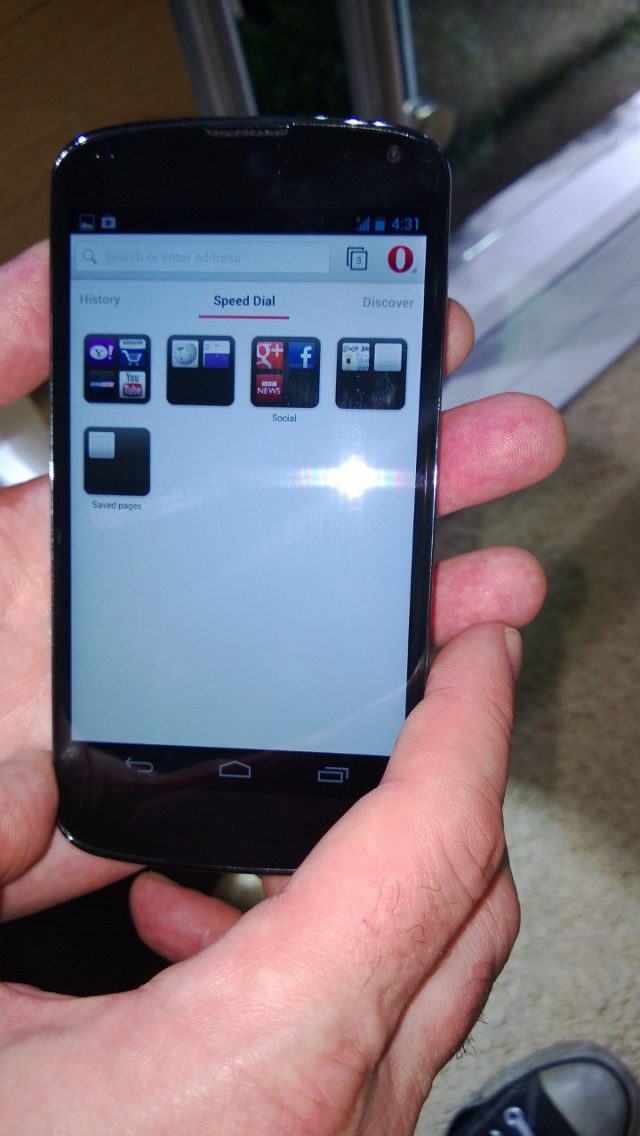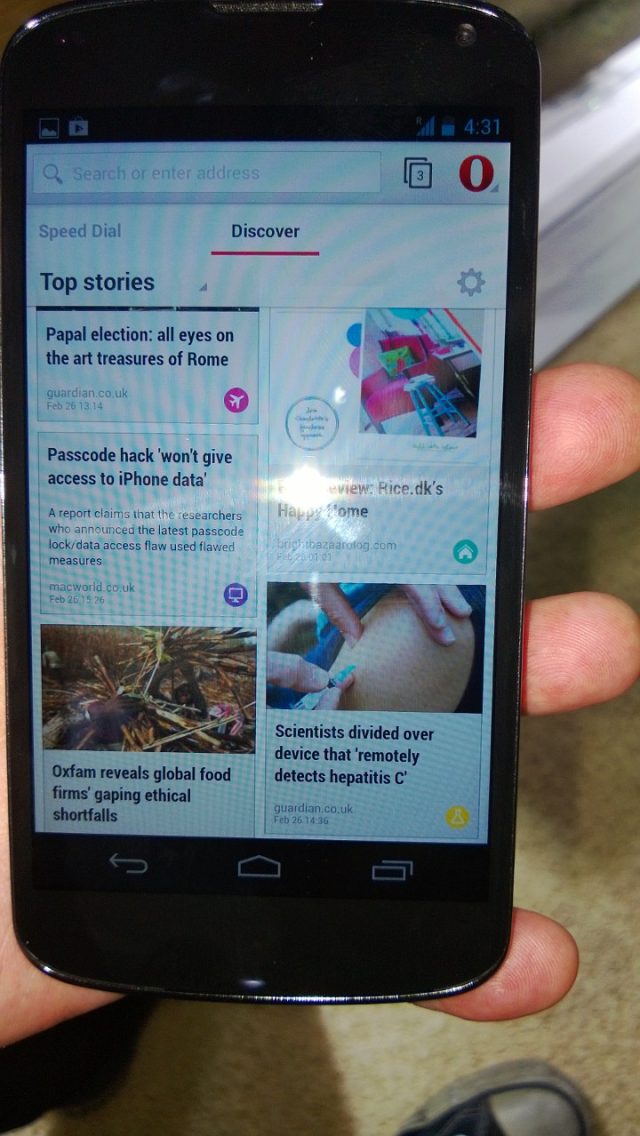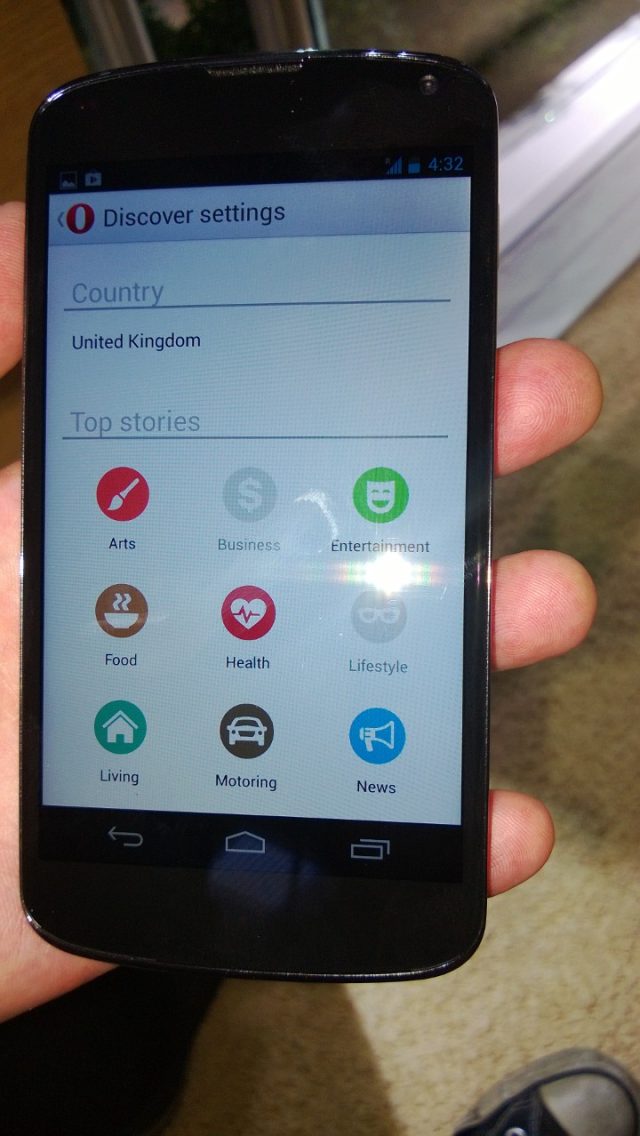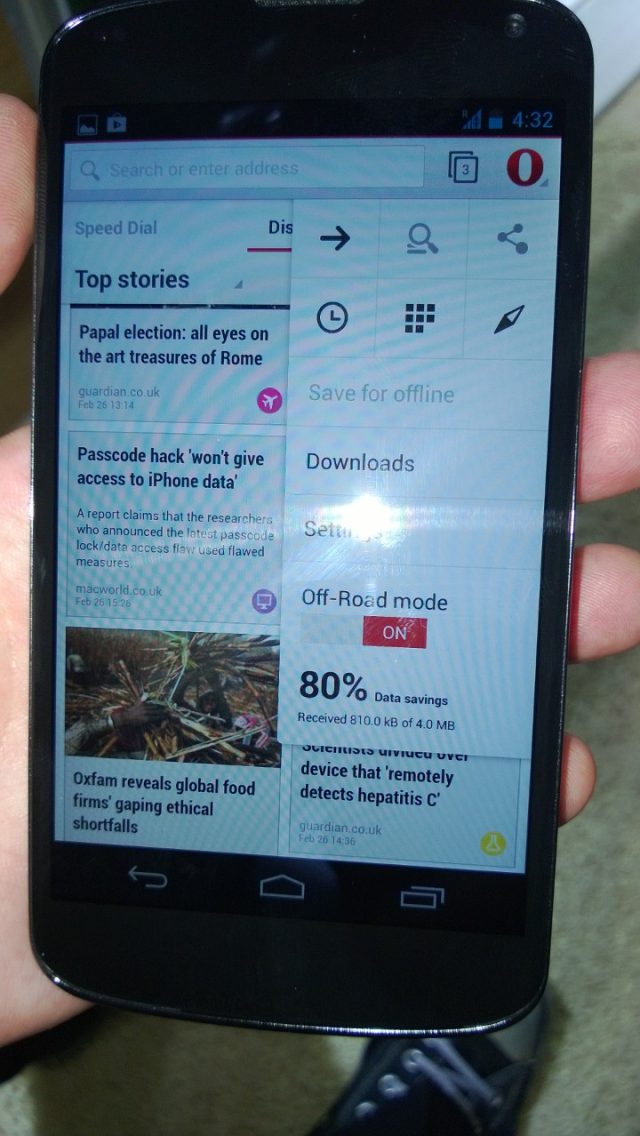Opera's announcement earlier this month that it was dropping its existing rendering engine and switching to WebKit made ripples throughout the Web community and raised an important question: if Opera is just another WebKit browser, how does it offer value and retain users—and relevance?
We had a chance to see a prerelease version of the new WebKit-powered Opera on Android and learn about the value the company hopes to give Web users. The focus was on three features: SpeedDial, Discover, and Off-Road mode.

SpeedDial is Opera's new tab page. Users are presented with a set of icons representing their favorite pages, offering one-tap access to those favorites. This is a long-standing Opera feature, not dissimilar to comparable features in Internet Explorer and Chrome. Opera has added a new feature that allows pages to be grouped together in folders, working in the same way as iOS's home screen folders. It's a simple change, but it's obviously useful.

Discover is a set of built-in news feeds. Swipe right from the new tab page and you'll see a listing of stories. The news sources are curated by Opera, and a configuration screen lets you pick the kind of stories you'd like to see, though there didn't appear to be any way to configure specific sites. The concept feels broadly similar to the new "BlinkFeed" on the new HTC One or Flipboard.

The final feature, and perhaps the most significant, is dubbed Off-Road Mode. This is, essentially, Opera Mini mode; it routes requests through Opera's own servers to compress and reprocess webpages and hence reduce the amount of data you have to download. The idea is that you would use this whenever your network connection isn't that good—hotel Wi-Fi, conferences, trains, and so on—or when every byte counts, such as when you're near your data cap or roaming abroad.

The savings can be pretty substantial, cutting down the amount of data used by as much as 80 percent. These gains could grow in future; the company recently bought a video optimization company, Skyfire, which should enable a wider range of content to be shrunk.
Although Opera originally thought of Opera Mini as a solution for emerging markets with poor networks, the company has discovered that about 30 percent of Opera Mini users are using it on smartphones. It turns out that owning a smartphone isn't synonymous with having permanent high-speed Internet access, and Opera Mini's compression technology is useful for a wide range of users.
With its WebKit browser, Opera can also offer support for older versions of Android. Unlike Chrome for Android, which requires version 4.0 or better, Opera will work on 2.x and up. With 45 percent of Android users still being on 2.3.x and another 10 percent on 2.1 and 2.2, this will give Opera much wider reach than Chrome, and it's consistent with Opera's historical support for low-end smartphones and feature phones.
If everything goes according to plan, the company will have its Android browser out next quarter, with a desktop version still due in the second half of the year.
reader comments
81